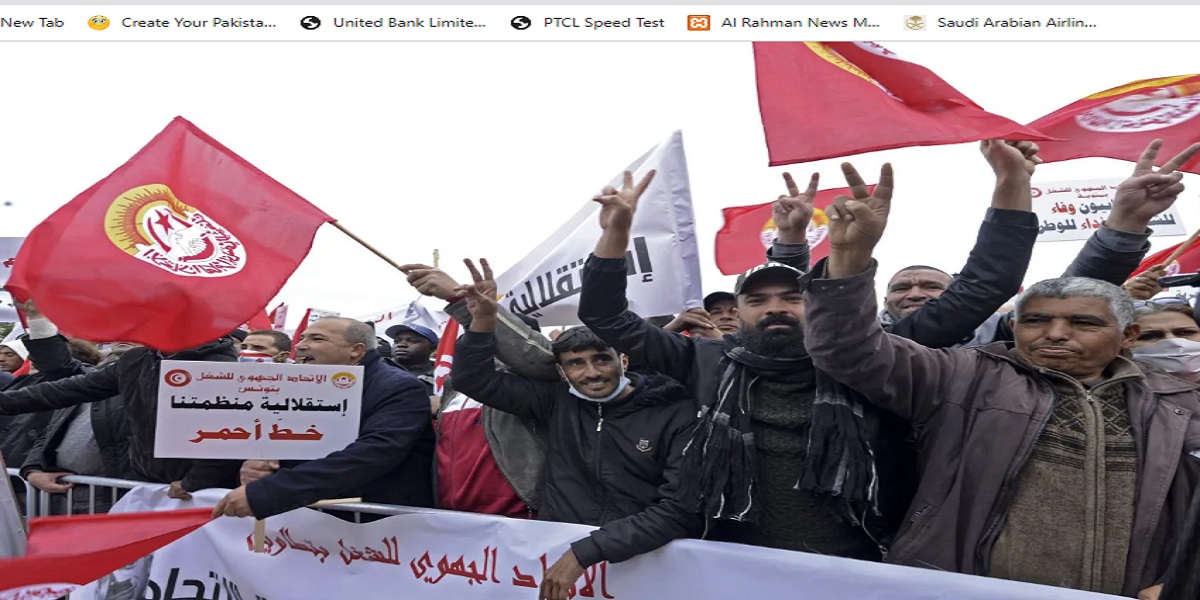UGTT union of Tunisia has called for a countrywide strike in June in public services and state-owned enterprises after the government failed to raise pay, an escalation that might jeopardize the government’s efforts to negotiate an agreement with the International Monetary Fund.
Tunisia is experiencing its greatest financial crisis and is seeking a $4 billion loan from the IMF in exchange for controversial measures such as a reduction in food and energy subsidies and salary freezes.
With more than a million members, the UGTT is Tunisia’s most powerful political force. The strike on June 16 will present the biggest challenge yet to President Kais Saied after his seizure of broad powers and moves to one-man rule.
The UGTT has rejected proposed spending cuts and instead wants wage increases for state workers as inflation reached a record level of 7.5 percent in April, from 7.2 percent in March and 7 percent in February.
Read More: Anger grows over ‘unjust’ travel bans on Palestinians in West Bank, Gaza
Saied, who took executive power and dissolved parliament to rule by decree, has since said he will replace the democratic 2014 constitution with a new constitution via referendum on July 25.
The president’s opponents accuse him of a coup that has undermined the democratic gains of the 2011 revolution that triggered the Arab Spring, but he says his moves were legal and needed to save Tunisia from a prolonged political crisis.
Saied’s plan to draft a new constitution met with strong opposition from political parties, which say they will not participate in unilateral political reforms and that they will boycott the referendum.
While Said focuses on changing Tunisian politics, critics claim he does not pay enough attention to the North African country’s collapsing economy. He has repeatedly said that Tunisia is rich but that the political elite stole the people’s money, which his opponents describe as populism.
Tunisia’s budget deficit will expand to 9.7 percent of the country’s GDP this year, compared with a previously expected 6.7 percent, due to a stronger US dollar and a sharp increase in grain and energy prices, the central bank governor, Marouan Abbasi, said this month.
For the latest International News Follow BOL News on Google News. Read more on Latest International News on oldsite.bolnews.com




















